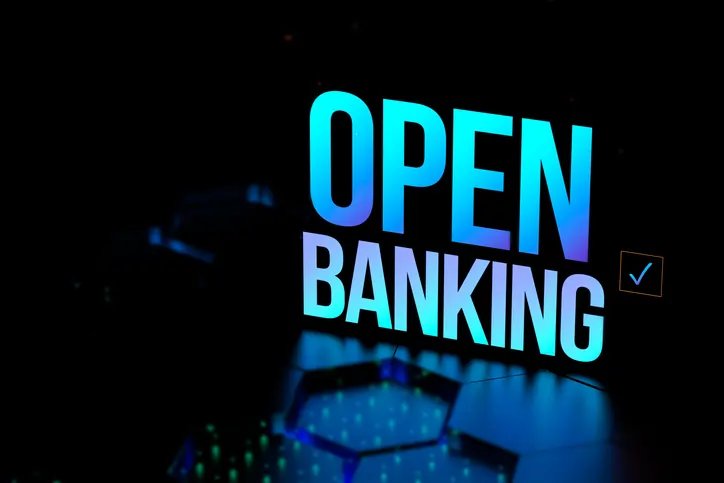Open banking is on the UK government’s agenda, but is the vision achievable and is it what consumers need?


By Philip Plambeck, Managing Director, Computop UK

There have already been so many developments in the payment experience for customers and businesses in recent years, but more is on the horizon, as we saw with the unveiling of the government’s new National Payment Vision last month. There are two priority initiatives, open banking and tackling fraud. Open banking will have a key role in delivering account-to-account payments (A2A), which the government sees as providing greater choice to consumers and merchants in how they make and receive payments.
Perhaps this move reflects consumer sentiment. A Mastercard survey published in October found that 70% of consumers connect their financial accounts directly to tools that help them manage various financial tasks. Examples of this include 72% sending or paying money to friends, family and businesses; 66% automating bill payments through open banking platforms and 66% using banking services. However, only 22% of consumers were familiar with the term ‘open banking’.
Definitions of open banking & A2A transactions
Of course, while they are related, open banking and A2A transactions are quite distinct concepts. Open banking is a regulatory framework that allows third-party financial service providers to access customer bank account information and initiate payments, provided the customer has granted consent. It aims to foster competition and innovation, for example, by enabling deeper bank account information to be shared with providers by Account Information Service Providers (AISPs). This is a process that is not always required in traditional transactions processed through Payment Initiation Service Providers (PISPs).A2A transactions are payments made directly between two bank accounts without intermediaries like card networks (e.g., Visa or Mastercard). This aims to simplify payment flows, reduce costs, and offer faster settlements by bypassing traditional card payment systems. One of the reasons that A2A transactions have become so popular is because they work well for ecommerce transactions.
Fraud vulnerabilities
A central pillar of the National Payment Vision is security, and with good reason. To date, A2A transactions have been more vulnerable to fraud because, unlike open banking, they lack authentication and fraud prevention mechanisms. Open banking mandates strong customer authentication (SCA) and uses APIs with secure, standardised protocols which in the UK are regulated by the Financial Conduct Authority, reducing fraud risk. By their nature, A2A transfers may depend on manually shared account details, prone to phishing scams and social engineering attacks such as Authorised Push Payment (APP) fraud.
In a survey carried out by The Payments Association in July amongst UK-based payments companies, 65% cited fraud as one of the biggest challenges defining financial crime in the next 12 months, and of 13 types of fraud outlined, APP fraud was the one selected by 27% of respondents as having the most impact on companies and their customers.
Regulatory change
To address this, the National Payment Vision promises that changes will be made to SCA requirements to deliver outcomes-based approaches that allow flexibility for businesses while reinforcing security for users. At the same time an independent review of APP fraud mandatory reimbursement rules will be carried out and the government has committed to working in tandem with tech and telecoms companies to cut fraud on their platforms.
Along with security, the Vision cites innovation and competition as key pillars supporting the future payments ecosystem. Embracing innovation, particularly where it helps to bolster UK businesses and the economy and meet the varied needs of citizens, is essential. But so too is choice, and whilst the convenience of open banking and A2A transactions will be an important driver in encouraging investment in a broad range of payment-related services, many consumers will continue to enjoy the well-established, robust security of credit and debit cards.
Questioning the Vision
Regulating our changing payment landscape is critical. SCA has for some time been seen as too prescriptive, and it will now be the job of the FCA to establish new rules. Critics are questioning if the Vision goes far enough and fast enough and are calling for more urgency. Some have suggested better prioritisation and scheduling by policymakers is needed to understand where resource should be placed. They also believe that more detail on legislation around the uses of data in open banking or against fraud is essential. Others have pointed out that waiting for regulation will take too long in a fast-moving market, with no guarantee that it will suit businesses and customers, and it would be better for open banking providers to set their own guardrails to drive adoption.
While the push towards better enablement of open banking moves ahead, albeit slower than some would like, customers still have a wide array of choices when it comes to payment and many are happy to use credit and debit cards and the digital wallets in their mobile phones, all fully delivered with consumer protection. In fact, according to figures from UK Finance, debit and credit card transactions are increasing, with transactions on debit cards 3.3 per cent higher and on credit cards 1.3 per cent higher in August 2024, than they were in August 2023.
Innovation at work in the EU
Perhaps the UK should also be looking to the EU for ideas for popular payment alternatives. Wero, for example, is a secure system that allows consumers to send and receive money instantly, in the same way as A2A transactions, and can be used across borders. It is available through the European Payment Initiative’s member banks and is offered to customers as a mobile app. Its ambition is to become the go-to digital wallet in Europe by 2027 and having launched in July it has already enrolled 14 million users and processed eight million transactions.
A national vision is important, and our industry is generally welcoming of the ideas and direction outlined in the government’s recent plans. However, there is a balance to be struck between innovation and established payments methods that consumers favour, particularly when it comes to security. Speed will be of the essence when it comes to driving regulation through, but in the meantime, most consumers, businesses and merchants will continue to be satisfied with the array of payments options at their disposal.
Fraud in banking refers to illegal activities aimed at obtaining money or sensitive information through deceptive means, such as phishing or unauthorized transactions.
Explore more articles in the Finance category
